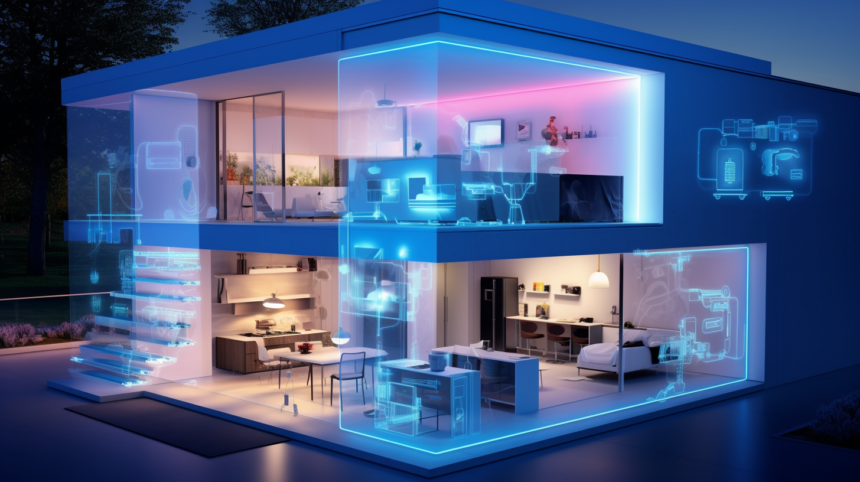Smart home devices are revolutionizing how we interact with our homes, creating a connected lifestyle that offers convenience, efficiency, and enhanced security. The good news is rapid advancements in internet connectivity and smart home technology has made it financially available to nearly anyone who is interested. The idea of having a smart home has officially transitioned from a futuristic fantasy in cartoons to an accessible reality for anyone with an internet connection. Here’s how you can make your life a more connected one.
Step 1: High Speed Internet Connectivity
The heart of any smart home is its high-speed internet connection. If your internet isn’t considered high speed, unreliable or slow at best; you’ll want to shop around before investing in any smart home devices.
High speed internet service such as fiber internet, 5G and cable are critical to ensuring that all your smart devices are operating seamlessly. Your high speed internet connection will need to be able to support a huge amount of data exchanged between your devices, cloud services and users. This will enable real time communication and control on your demand.
Key Components Of A Smart Home
Other than high speed internet service, you’ll need to invest in a few things like smart devices, a central hub, mobile apps and voice assistants. Here’s what you’ll need to get started:
- Smart devices: There’s so many options on market including everything from smart thermostats and lighting systems to security cameras and smart speakers. Smart devices are designed to communicate with each other and you through your wireless internet connection.
- Central hub: Sometimes this is also referred to as a smart home hub. This device acts as your home’s command center; integrating and controlling all of your smart devices. Some popular choices are Amazon Echo, Google Home and the Apple HomePod.
- Mobile apps and voice assistants: Smartphones, tablets and voice activated assistants like Amazon Alexa, Google Assistant and Siri allow everyone in your home to interact with your smart home ecosystem both remotely or through easy to learn voice commands.
Benefits Of Living A Connected Lifestyle
Smart devices can seem overrated if you’ve never experienced them before. But there are huge benefits of adopting a connected lifestyle, some you may not have even considered or may be led to believe are too techie for you. Here’s some benefits anyone can enjoy:
- Control your home: With internet connected smart devices, homeowners can control their home from anywhere in the world. You can adjust your thermostat, turn off your lights, and lock your doors remotely through an app on your smartphone.
- Energy efficiency: Smart thermostats and lighting systems have the ability to learn your preferences and adjust their settings automatically without you having to do a thing! They can limit your energy usage, which can save you a significant amount of money on your utility bills.
- Enhanced security: Smart security systems offer owners real time monitoring and alerts sent directly to their smartphones and tablets. All made possible through internet connectivity. You can also view live feeds from security cameras, receive notifications of movement or suspicious activities and lock and unlock your doors.
- Automation: Living a connected lifestyle isn’t always you taking an extra step to see or do something. Internet connected smarthomes have automated components. For example, your lights can turn on when motion is detected or your coffee maker can start brewing when your alarm goes off in the morning.
- Integration with other services: Smart homes are known for their integration and can even be integrated with other online services that you may find useful. Services like TV streaming platforms and grocery delivery services.
Potential Concerns & Challenges
Living a connected lifestyle is wonderful, but it’s not all sunshines and rainbows. There’s some potential concerns you could encounter too like these:
- Privacy: The data exchanged between your smart devices and your internet connection can be susceptible to hacking just like anything else. It’s essential that you take the proper security measures seriously. You need to use strong passwords, update your devices regularly, enable encrypted connections and more.
- Compatibility: With all the smart home devices available on the market, there’s bound to be an issue somewhere. It’s important to choose smart home devices that are known to work well together with your chosen smart home hub.
- Complete dependence on your internet connection: Your internet connection needs to be reliable at all times. Any disruption will affect the functionality of your smart home devices. You’ll need to have an internet provider that delivers consistently with minimal outages.






